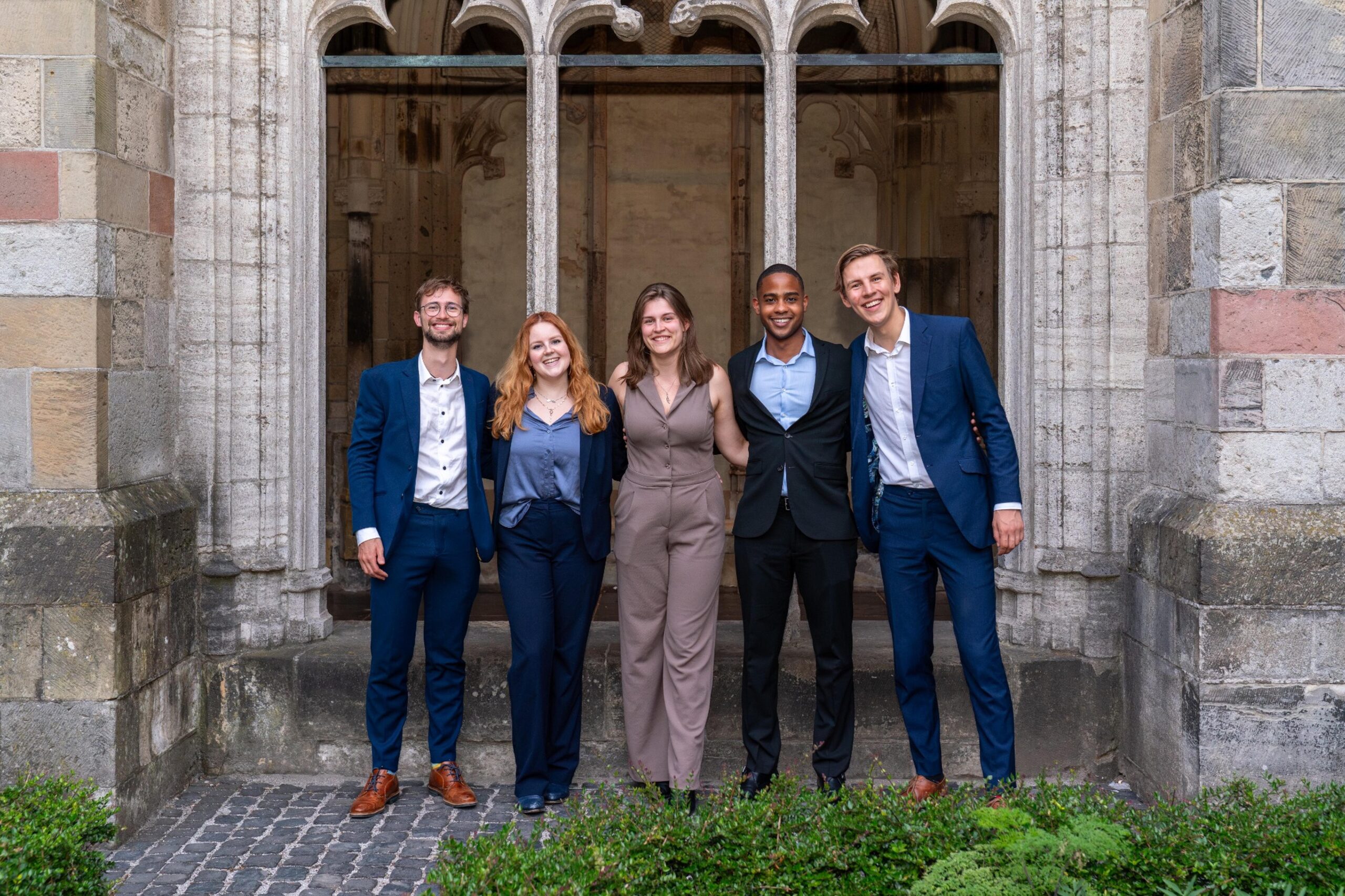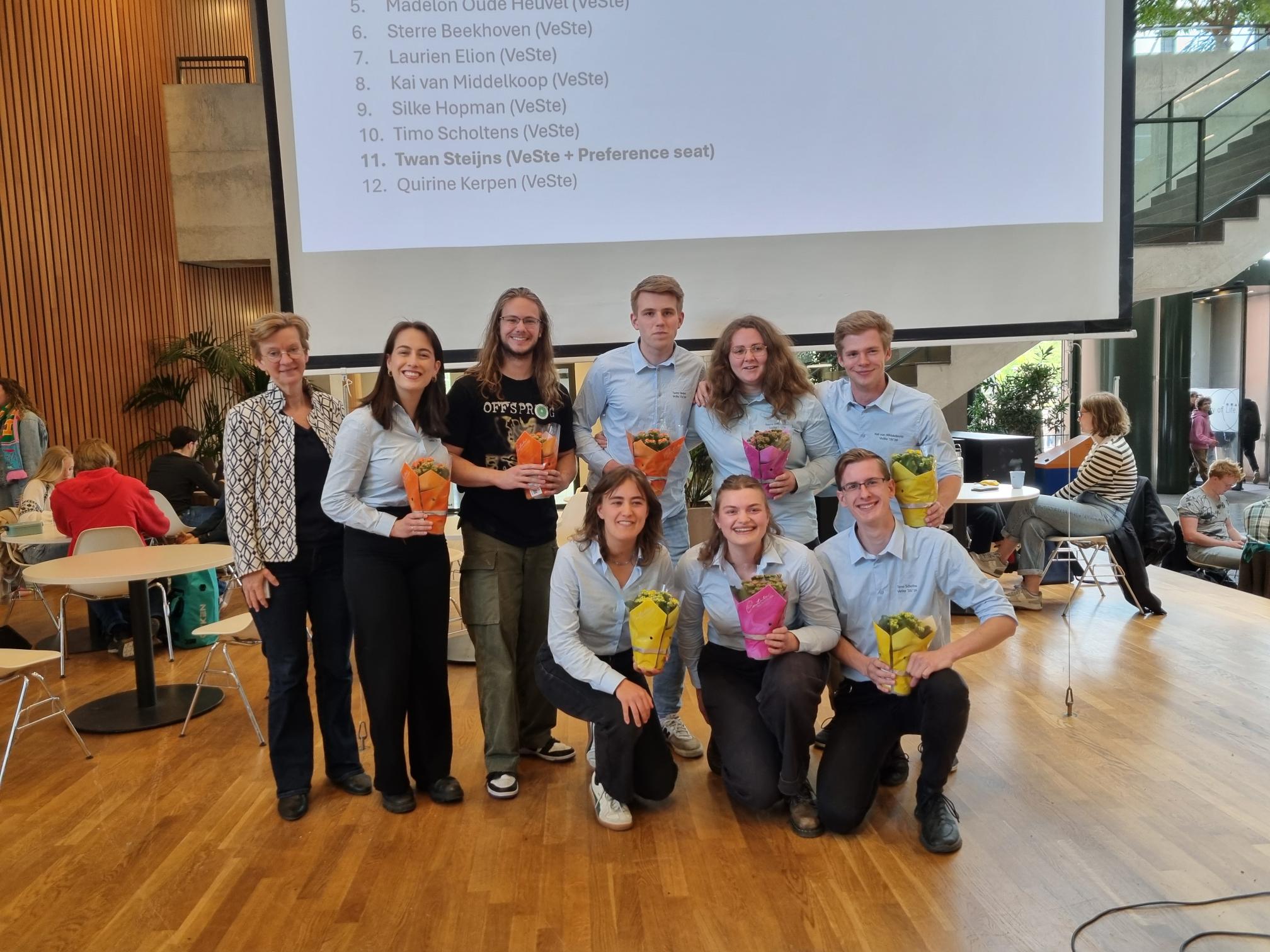The Student Council elections are due soon, but not many students are interested in standing for election. It is difficult too to find students for programme committees, professorship appointment committees or the Board of Education. What is going on here?
WUR students are often engaged, critical and not afraid to speak their mind, says Dean of Education Arnold Bregt. That makes it all the more surprising that students seem less and less willing to get involved in the decision-making processes for teaching and other university affairs. ‘It was hard enough before the Covid period, but student participation has declined everywhere since then,’ says Bregt. Rector Arthur Mol sees this too: ‘For two years, students did not have much connection with what was going on at the university. It means an entire cohort hasn’t had the opportunity to learn from more senior students what taking part in the decision-making involves.’ Student Council chair and Earth and Environment Master’s student Wybrig Bakker also thinks Covid has played a role. ‘If you started your degree during that period, you couldn’t enjoy activities alongside your degree. Now students are busy again with their societies, but perhaps they aren’t yet up to joining a programme committee or the Student Council. But it’s really important to do that because if we don’t get involved, we don’t get a say in decisions.’
Code red
The problem is not limited to Wageningen. The national forum for university participatory bodies LOVUM recently sent an open letter to Scienceguide.nl claiming it was ‘code red’ for consultative bodies in higher education. ‘Healthy pushback is crucial for a properly functioning university,’ says the letter. LOVUM called on the minister and university administrators to make participation more attractive. For students, that means not just a proper financial allowance but also making sure they are ‘seen, heard and appreciated’.
Neither Bregt nor Mol think money is the primary reason for the declining interest among students in consultative bodies in Wageningen. Bregt: ‘The financial implications were the same before Covid as now, but this problem is much worse now.’ Mol: ‘Of course students on councils and committees would be happy to see the allowance increased, but I think we already have pretty reasonable compensation for committee and council work. WUR pays the most per student in committee grants of all the Dutch universities.’
Time and money
Bakker, however, thinks financial considerations do play a role. ‘If you’re covered by the student loan system and don’t qualify for a basic grant, taking a year out for committee work or the Student Council is expensive. We get FOS (student financial support scheme, ed.) and a small extra allowance, which together come to 545 euros per month.
We already offer reasonable compensation for committee and council work
But we still have to pay the rent, which in my case has risen to 400 euros a month. And even though as full-time members of the Student Council we don’t attend lectures, we still have to pay over 2200 euros in tuition fees.’
So participation costs time and money, concludes Bakker. ‘If you want to make it more appealing, change the rules to let students on councils and committees borrow from the Education Executive Agency for an extra year, or get a year’s exemption from tuition fees.’ Bregt says the exemption would be tricky because you have to be enrolled as a student in order to be on the Student Council.
Sophie Galema was chair of the Student Council in the 2018–2019 academic year. She is in favour of a higher allowance, even though she doesn’t expect it to persuade more students to opt for council or committee work immediately. ‘When I was on the council, the FOS was supposed to cover the tuition fees, but I would recommend compensation for both the tuition fees and the rent. Now you spend one more year with a student loan and you start earning one year later. That would make the system fairer.’
Best year
The return of the basic grant from September will make the financial picture more appealing. There is also a proposal to increase allowances for students doing committee work. But that will probably not be enough to resolve the problem of the lack of interest among students.
If we don’t get involved, we don’t get a say in decisions
So what is the solution? Rector Arthur Mol: ‘We need to do a better job of explaining the benefits of participation for both the student and the university.’ Bakker: ‘I agree. You learn different things in the Student Council to what you learn in the lecture room. You get to know people, you build a network and you have a say in the university’s policy. That is really cool and educational. But how can we get that message across to all the WUR students?’
Former chair Galema has a go. ‘You work together intensively as a group to achieve things. You discover your own strengths and you learn how to collaborate. You represent the students’ point of view in the organization. Quite apart from that, I found it the best year of my student days. People often don’t realize how much fun it is.’
In what way?
In Galema’s time, the Student Council had a say on the layout of Aurora. ‘There weren’t enough spots for independent learning on campus. Thanks to our input, Aurora now has an open layout that invites people to study together.’ Bring Your Own Device was another topic of discussion. ‘We made sure that students who couldn’t afford a laptop would be able to borrow one free of charge.’ There are quite a lot of issues people are concerned about, says Galema. ‘Equality, growing student numbers, climate change. You can help tackle these issues in the Student Council with your ideas.’
Mol, Bregt, Bakker and Galema are all agreed on the importance of students getting involved, but there does not seem to be a clear answer on how to make involvement in consultative bodies more attractive. Bregt: ‘If there was a simple solution, we would have found it by now.’
How do you think student participation could be made more appealing? Have your say at www.resource-online.nl

 Illustration Valerie Geelen
Illustration Valerie Geelen 

